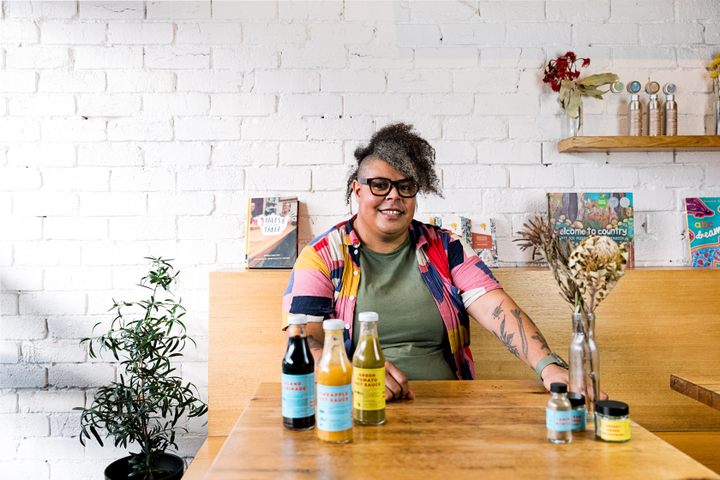

This Torres Strait Islander Chef Wants You to Cook With Wattleseeds and Bush Tomatoes
Mabu Mabu, Nornie Bero’s first cookbook, is a celebration of Aboriginal culinary traditions.
Some of Nornie Bero’s earliest memories involve hunting for octopuses, periwinkles, and all sorts of shellfish on the reef surrounding Mer Island. As a member of the Komet tribe, one of eight Aboriginal tribes on the small Torres Strait Island in Queensland, Australia, Bero grew up with a deep appreciation for Indigenous culinary traditions. Yet when she ventured into the hospitality industry at age 18, she seldom saw these ingredients and techniques in Australian kitchens and restaurants.
All that is changing, in no small part as a result of Bero’s efforts. Since 2018, when she opened her first restaurant, Mabu Mabu in South Melbourne Market, Bero has worked to educate the Australian public and create greater visibility for Indigenous chefs. In late 2021, despite COVID-induced lockdowns, she opened Big Esso in Melbourne’s fashionable Federation Square. Her menus feature dishes such as emu steaks with saltbush chimichurri, saltbush lamb with Warrigal greens and lemon-myrtle labne, or island-style coconut-cured kingfish.
Thanks to her restaurants and line of condiments, more Australians are incorporating finger limes, quandongs, and other foraged foods into their pantries. In March 2022, Bero will release Mabu Mabu: An Australian Kitchen Cookbook. Gastro Obscura spoke with Bero about the book, her long road to success, and why we should all be cooking with bushberries and wattleseeds.
What initially drew you to food and working with wild, foraged ingredients?
When you live on an island that is quite far away from the mainland, the resources you get are flour and rice. You grow and you fish for everything else. So all the yams and native fruits and anything that comes out of the ocean is part of your diet. You’re pretty much self sufficient. I’m lucky I grew up on a reef, walking on it every morning.
So did you always know you wanted to grow up to be a chef?
I think my dad pretty much knew I was gonna be a chef, but I did everything else first. Coming from a tiny tropical island, I wanted to move away from home and experience the world. But it was always in the back of my mind. I couldn’t get away from it. For me, the journey was amazing.
Do you miss your life on Mer now that you’re based in Melbourne?
I live in a city now and it gives me a perspective of loving the way that I grew up. I guess I felt that I could look after myself and I guess that’s what carried me through.
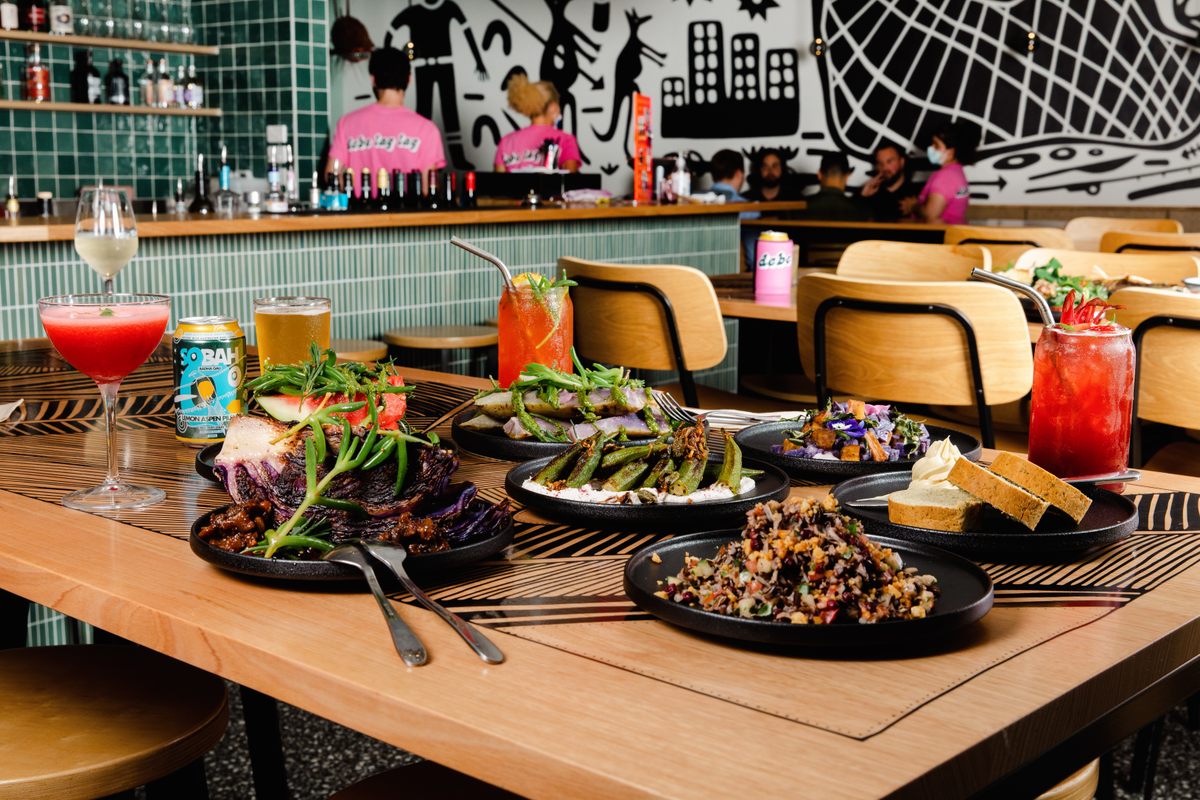
How has that sense of self-reliance served you?
It was very difficult for a woman to be head chef and to come up in the ranks [when I did]. Most of my girlfriends in the industry cried every day. I just had a hard shell, I think. I stuck with it, because I really love this industry and I wanted to make a difference. I think the world is changing now in the industry and I think it’s amazing to see more women in the forefront. I’ve been lucky to learn from so many people and to see for myself how truly multicultural this industry is.
You’ve done an enormous amount of work at your restaurants and with this cookbook to educate Australians about Indigenous ingredients. Could you tell me about why you felt there was a need to do so?
Food is the gateway of opening up so many conversations about us being a multicultural society. Opening my business has changed a lot of people’s ideas of Indigenous cuisine. When I opened my first café, I had a lot of people say, “I didn’t know Indigenous people had cuisine.” I understood that it wasn’t meant in a malicious way. Opening these restaurants has put my people on the map and educated people that we’ve been making this amazing food for generations.
Let’s talk about some of those food traditions.
Australia’s a giant island, and we have such an abundance of foods in this country. I want to make sure that we’re trying them all. I’m a big shellfish fan, but not just crayfish and crabs. More like periwinkles and others. They’re a sustainable part of our lifestyle as well. We should be celebrating them more. I think I’ve been able to make them the heroes of many of my dishes.
What’s another unsung-hero ingredient?
I would love people to understand what bush tomatoes are. Many people talk about bush tomatoes, but they don’t know how to use them. I call it the Indigenous stock cube, because it gives you this natural flavor enhancement. It creates this array of flavors that your brain tricks you into thinking, “Oh I know what that is.” It’s one of my favorite things to use and talk about, because it’s so underutilized. Traditionally, it was left on the vine to dry out, so it gives you all these big flavors. It looks almost like a berry eggplant with all these beautiful seeds inside.
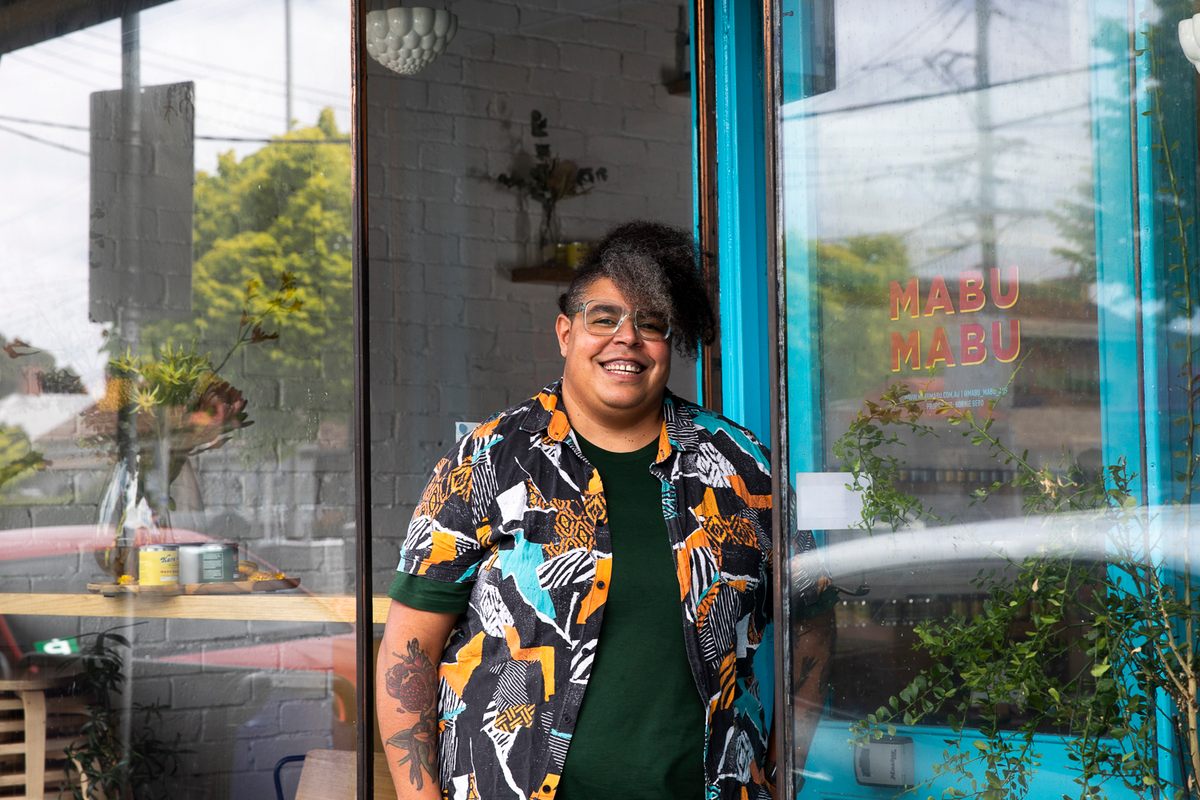
It’s like a big burst of organic MSG. Honestly, that sounds amazing.
Wattleseed is another one of my top five ingredients. Because it comes from a seed, it’s a natural thickener, but it gives you these nutty, malty flavors. If you put it into bread, you get this nutty flavor and aroma, almost reminiscent of sourdough, but with notes of hazelnut and chocolate. And it’s great when you’re mixing it with chocolates and desserts and breads. It works in savory items as well.
How has your work impacted your community on Mer?
Kids from my community now want to be chefs. This week I’ve got an apprentice. She asked to come in and learn.
Why the name “Mabu Mabu”?
“Mabu Mabu” means “help yourself.” It’s like saying bon appétit. We have big family do’s where everybody cooks and we have a big table of food, then someone says mabu mabu and everybody grabs a plate. It’s all about eating together and enjoying it. For me, mabu mabu means that. When I was looking for a name for my business, my best friend heard me say mabu mabu at my wedding. It just stuck. I want to represent my tradition and also my language—we have words for delicious and people should know that.
This interview has been edited for length and clarity.
Gastro Obscura covers the world’s most wondrous food and drink.
Sign up for our regular newsletter.








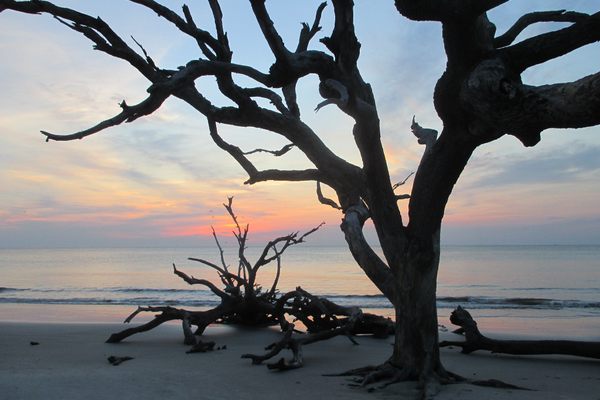


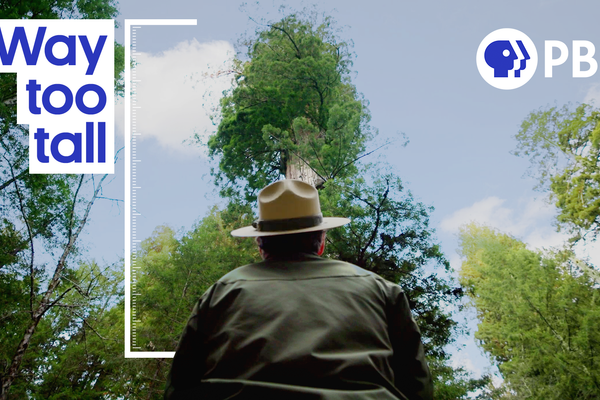












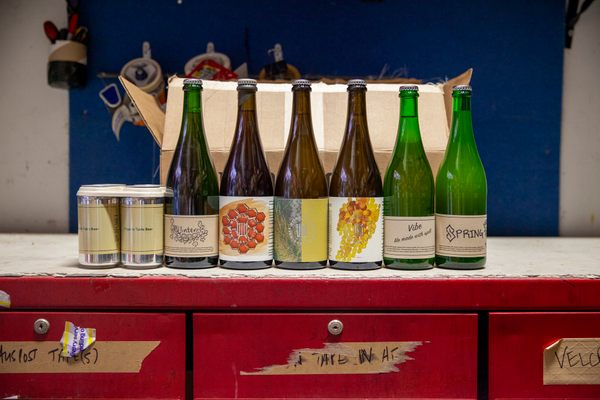

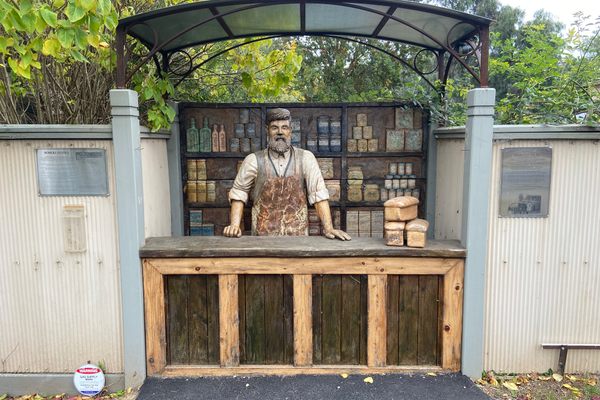


Follow us on Twitter to get the latest on the world's hidden wonders.
Like us on Facebook to get the latest on the world's hidden wonders.
Follow us on Twitter Like us on Facebook